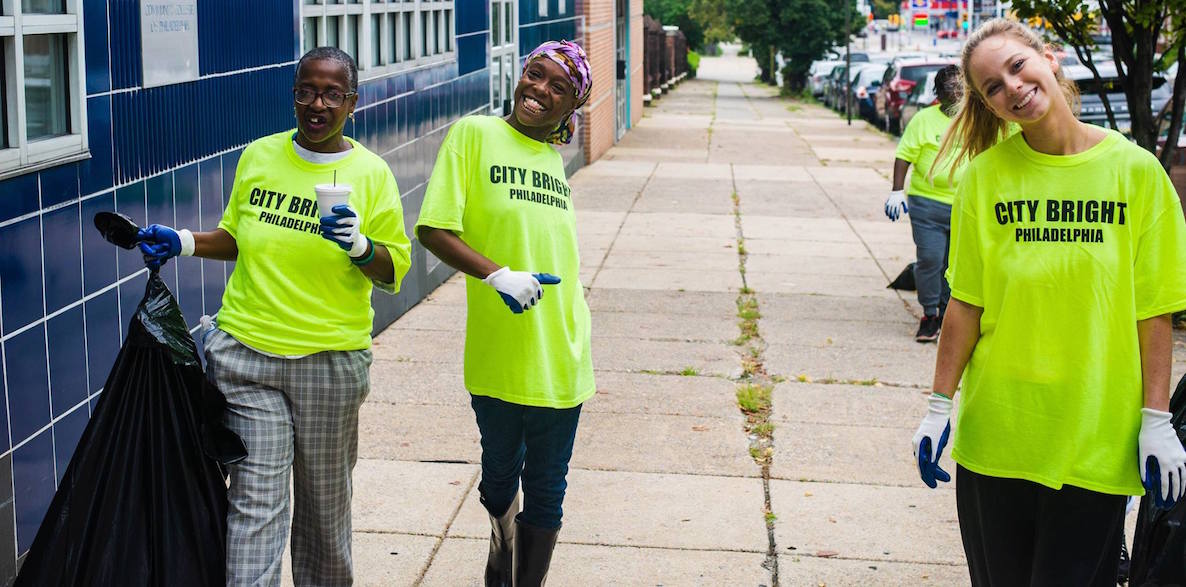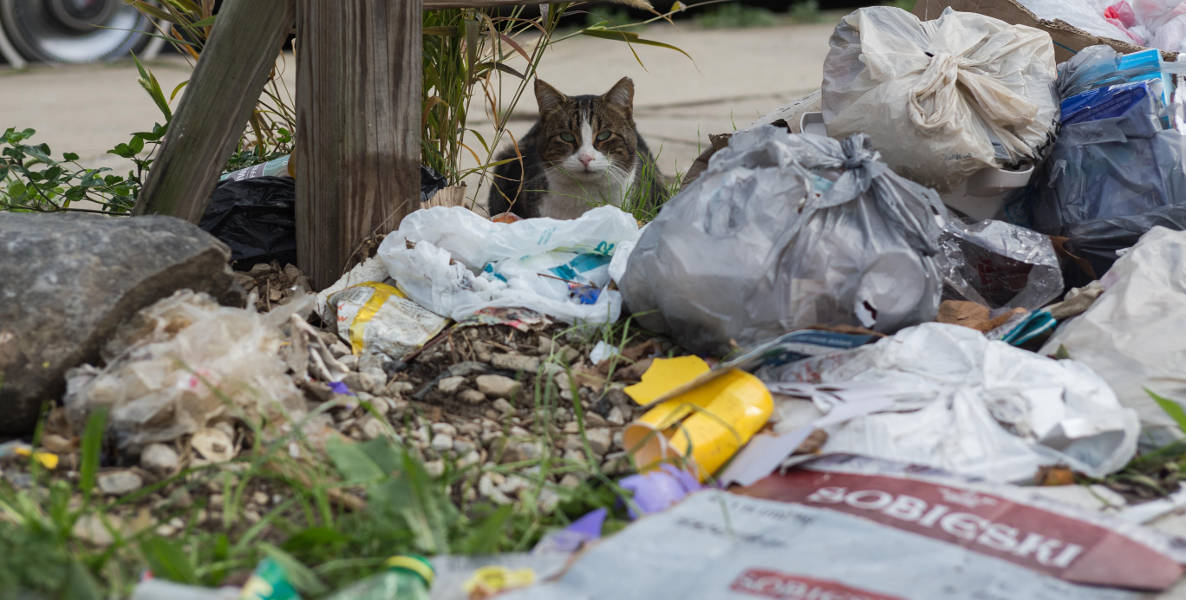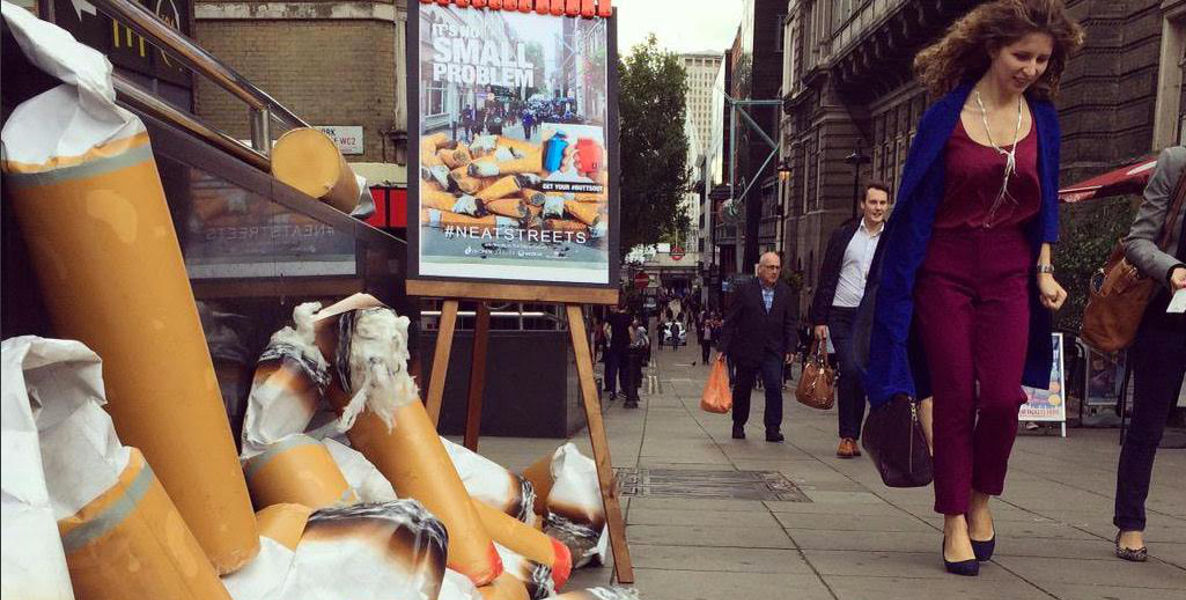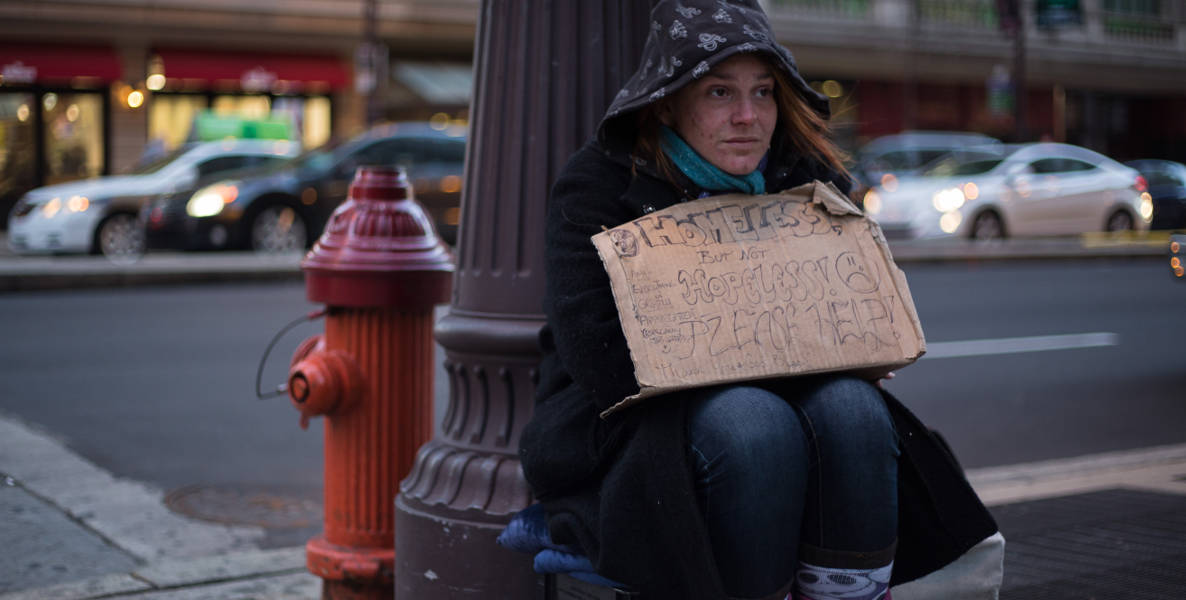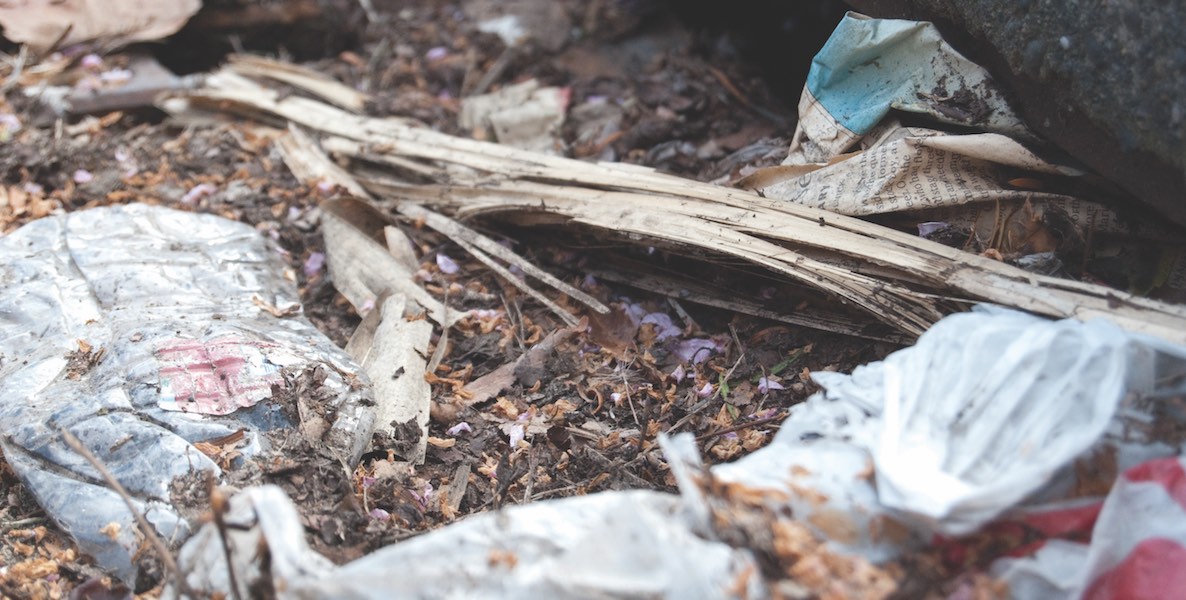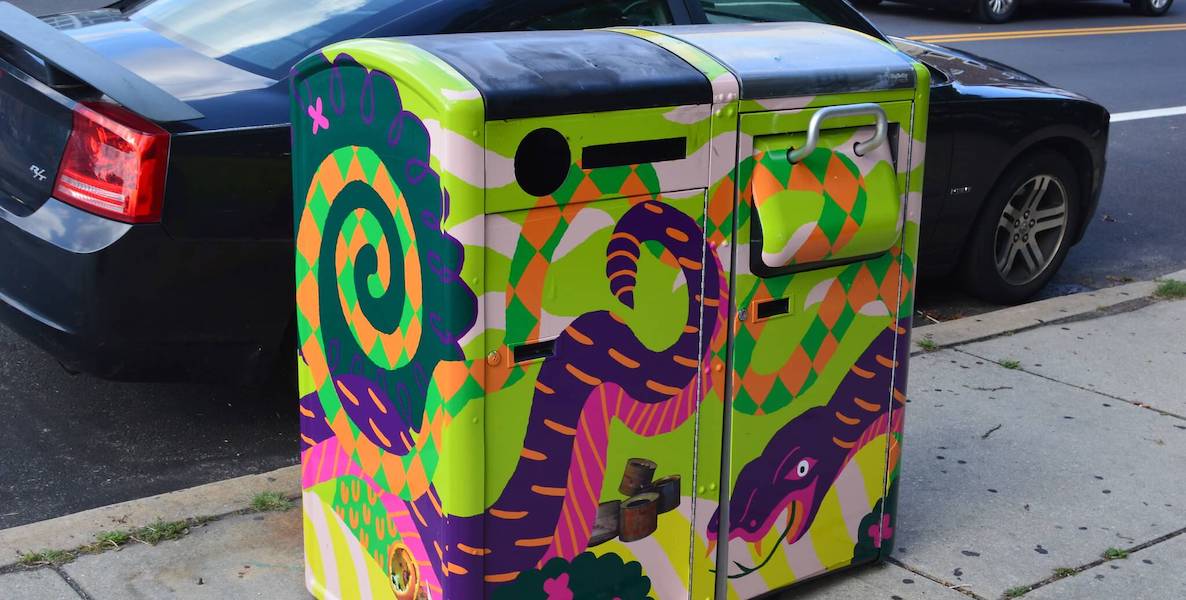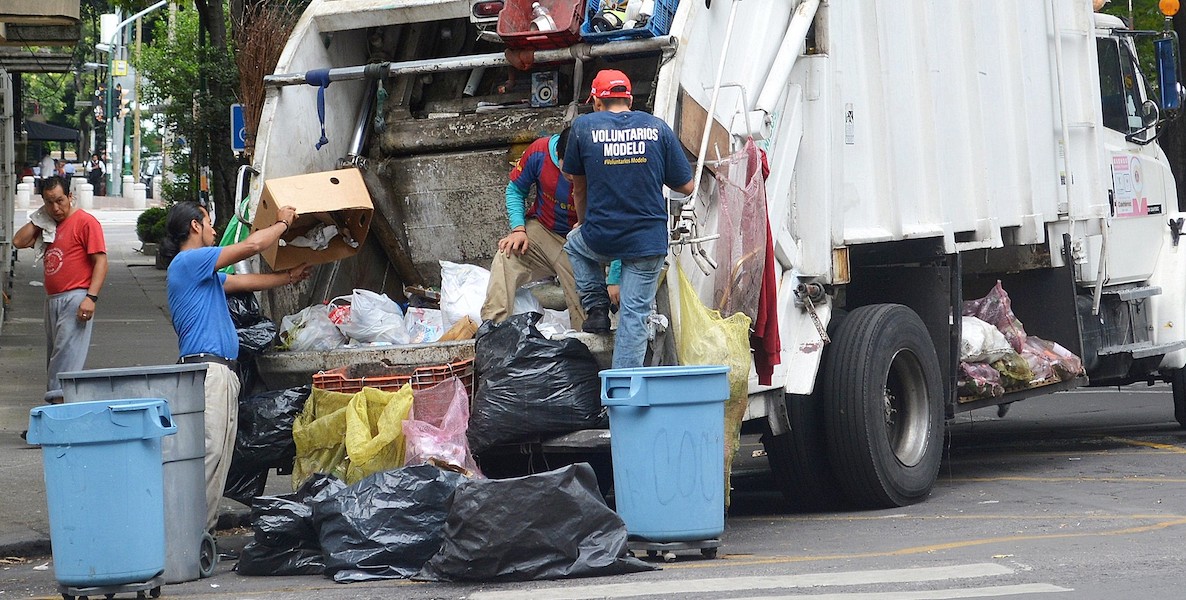A new report by Burns McDonnell for Keep Philadelphia Beautiful examined how Philadelphia and eight other Pennsylvania cities spend their resources on litter prevention versus clean-up (“litter abatement”).
The report includes a useful rundown of all the organizations, departments and city programs that touch on the litter issue, to present a more holistic sense of Philadelphia’s approach.
We’ve written in the past about the Streets Department’s aversion to street trash cans, and the counter-intuitive theory they’ve been operating under where public cans are thought to create more litter.
A recent experiment conducted on the city’s behalf found that’s not really true, but Streets hasn’t entirely come around to the idea that what’s needed are more city cans, emptied more frequently by city workers.
This is what they’ve been doing instead:
To prevent litter throughout the city, the Streets Department installed and maintains around 500 solar-powered Big Belly trash receptacles throughout downtown Philadelphia and another 460 across other commercial districts.
The city created the Community Cans program to provide supplementary litter cans, partnering with sponsors in commercial districts (community groups, Community Development Corporations, and Business Improvement Districts) to place over 50 wire-mesh litter cans in the public right-of-way.
The Philadelphia Water Department has contributed to this effort by leveraging EPA Trash Free Waters grant funding to add litter cans in two residential areas, decorating the cans with art by local artists.
Additional litter cans are maintained in parks throughout the city by the Parks & Recreation Department, which has also added recycling collection at every municipal recreation center.
To reduce litter in residential areas, the Streets Department is piloting a program called PhilaCan, allowing residents in densely populated neighborhoods to maintain lidded, city-issued refuse bins in front of their homes that their neighbors and other pedestrians can also use as litter cans, for depositing waste as they pass by.
So far, 1,500 cans have been deployed through this program, and the city will use the Litter Index dataset to measure the program’s effectiveness over time.
One way to measure the effectiveness of the PhilaCan program would be to monitor whether people who see a need for litter prevention in their neighborhoods are actually able to get a can from the Streets Department.
It’s possible this information could be out-of-date, but according to this Streets website that tracks PhilaCan applications, a super majority of requests have gotten tripped up on the 75-percent neighbor-approval requirement that Streets inserted into the application process.
![]() Out of 96 active requests, only 15 applications—16 percent—have completed the 75-percent signature collection requirement to receive the cans, according to the website, which also charts where people are in the signature-gathering process.
Out of 96 active requests, only 15 applications—16 percent—have completed the 75-percent signature collection requirement to receive the cans, according to the website, which also charts where people are in the signature-gathering process.
Twenty-nine of the partially completed PhilaCan applications have over 50-percent neighbor approval already, but those blocks won’t be able to get the cans without 75 percent, so the applications could stall out there, even though they have simple majority support.
This isn’t the only Streets-related activity with a hefty signature-gathering requirement. Streets also sets near-neighbor approval requirements for the following activities, and possibly more:
|
|
|
|
|
|
We’re now in the middle of the petition period for candidates running in the 2020 Pennsylvania primaries, where candidates for president, convention delegate and the state legislature are collecting signatures from party voters in order to qualify for the ballot.
These types of signature-gathering requirements make sense in an election context, since candidates need to prove there’s at least some minimum baseline of support for them to build on in the election. And the block captain example makes some sense for this reason, since you’re choosing somebody for a leadership position, even if it’s a small one.
But it’s a bad idea to include these kinds of local approval requirements for any other activities, because as we see from the PhilaCan example, their main effect is just to make it unnecessarily cumbersome to make changes—changes that in many cases the Kenney administration is publicly committed to supporting, like block parties and public spaces, supporting play streets, calming traffic, managing street congestion and preventing litter.
![]() These are all positive things, and the city’s top priorities in designing the approval process for them should be a bias for action—maximizing the likelihood of successful applications.
These are all positive things, and the city’s top priorities in designing the approval process for them should be a bias for action—maximizing the likelihood of successful applications.
For things like speed cushions or pedestrian plazas, Streets should be given clear goals for how many projects to aim for per year, and adjust their processes accordingly to hit them.
Unfortunately, it’s impossible now to measure how many applications for these types of activities were started but not submitted, but a report from the Lindy Institute last year found that the uptake rate on the city’s pedestrian plaza program—which requires 50-percent near-neighbor approval—is very low, and incomplete applications have crashed and burned over things like neighbor approval and insurance requirements.
Some of the activities mentioned should be fully in the realm of administrative decision-making, like pedestrian plazas or residential permit parking, because they impact more than just the immediate block and have wider ramifications.
Many more people than just near neighbors will use a particular intersection, and their needs should be part of the decision-making calculus, too.
In the case of residential parking permits, the city should be working to reduce car congestion at the neighborhood scale, not just leaving the outcome up to block by block petitions. A larger policy solution is needed, not a series of micro elections.
Even with block parties, where the permitting is pretty easy, it can actually get even easier. In Seattle, the Play Streets program, which is like our block party and Play Streets program combined, only requires a simple neighbor-notification requirement as part of the application to register as a play street, and there’s no fee.
Getting play-street status with the city gives you ongoing permission to close your street to cars, rather than requiring a new permit application and a round of signature-gathering for each event.
The shift to a neighbor-notification requirement from an approval threshold preserves what matters about the required outreach—having the courtesy to let people know what’s happening—without giving a numerical minority of residents veto power over anything.
In his second term, Mayor Kenney should task the Streets Department with identifying ways to build a bias for action into their permitting for citizen-initiated activities, to better align the administration’s big picture commitments with the ground-level reality of how many city processes can seem purposefully designed to inhibit change.
Jon Geeting is the director of engagement at Philadelphia 3.0, a political action committee that supports efforts to reform and modernize City Hall. This is part of a series of articles running on both The Citizen and 3.0’s blog.
Want more trash talk? Check out these related articles:
- Could smarter tech really be the solution to Philly’s trash woes?
- This woman is on a mission to clean her litter-filled West Philly neighborhood
- Kenney’s street-sweeping pilot may cause more pollution in our polluted city



